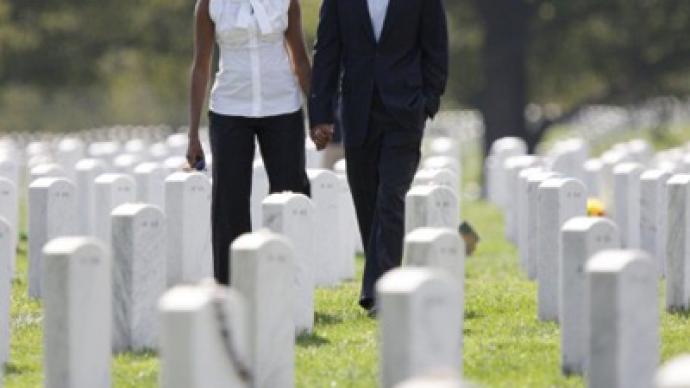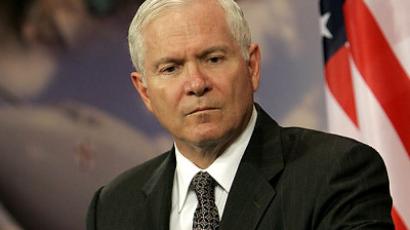Obama’s fatal Afghan gambit

The total number of US troops killed in Afghanistan has officially doubled since President Barack Obama took office less than three years ago. But as the US president claims the conflict is drawing down, the real war might just be getting started.
The number of US troops killed in the decade long war in Afghanistan reached 1,728 over the weekend, according to the latest figures from icausalities.org. With some 575 troop deaths recorded during the seven years the Bush administration prosecuted the war, the latest figures show that the total number of war dead has more than doubled under Obama’s watch. The spike in US casualties indicates the dramatic escalation in military operations since President Obama’s announced his surge policy before cadets at West Point Military Academy.While there were some 31,000 US troops serving there by the end of 2008, troop levels in the country have seen a twofold increase since 2009. But as US causalities grew at a rate parallel with the increase of soldiers on the ground, President Obama claimed the war was actually beginning to wind down. Speaking from the White House on June 22, he told the American people “we can take comfort in knowing that the tide of war is receding. Fewer of our sons and daughters are serving in harm's way. We have ended our combat mission in Iraq, with 100,000 American troops already out of that country. And even as there will be dark days ahead in Afghanistan, the light of a secure peace can be seen in the distance. These long wars will come to a responsible end.”But as the tide of war “receded,” this past August would mark the deadliest month for US forces since the war began, with some 66 soldiers reportedly killed. The following month, Taliban insurgents would launch a brazen attack on the US embassy in the heart of Kabul. While the US ambassador in Afghanistan played down the September 14 embassy attack as being “no big deal,” many Afghans have come to believe that the Taliban is increasingly establishing a foothold in the once secure capital.
Obama goes for broke
President’s Obama’s doubling down in Afghanistan and the ensuing violence it inspired hinged on a threefold set of goals. “When I announced this surge at West Point, we set clear objectives: to refocus on al-Qaida; reverse the Taliban's momentum; and train Afghan security forces to defend their own country.”In regards to Al-Qaida, the dwindling number of foreign fighters actively operating in Afghanistan has rendered them mostly irrelevant in the ongoing struggle for the future of the country. In fact, the real problem seems to lie in making ethnic Pashtuns, who compromise some 42 per cent of the population and share deep preexisting cultural and religious ties with the Taliban, loyal to the notoriously corrupt Karzai government.The United States attempts to defeat a cultural mindset through military means might shed light on the difficulties in stamping out the insurgency via increased troop levels. The Taliban have long recognized what they believe is a failed strategy on behalf of the United States and NATO forces to fight the Afghans into submission. And any hopes of finding a peace with the Taliban through negotiations fell through when the former President Burhanuddin Rabbani was killed by a suicide bomber last month. Rabanni, who was serving as the head of Karzai’s Peace Council, had been tasked with reaching out to the insurgents. And while Karzai vowed to stop talks with the Taliban, Rabanni’s death represented a clear blow to the Afghan president’s ability to effectively govern. Such chaos seems to be perfectly in line with the Taliban strategy. “In the past nine years, the invaders could not establish any system of governance in Kabul and they will never be able to do so in future,” Taliban spokesman Zabihullah Mujahid proclaimed, as cited by Al Arabiya. Perhaps recognizing that the insurgency has actually grown despite the intensification of military operations, President Obama’s assertion that the “Afghan people will be responsible for the own security” is less cut and dry then it might have originally appeared. According to the Telegraph, US and Afghan officials are expected to sign a strategic pact before the Bonn Conference on Afghanistan in December which would could see up to 25,000 American troops staying in Afghanistan until 2024. But as many Afghans increasingly view the war as a struggle against foreign occupiers, the decision to maintain a seemingly permanent military presence in Afghanistan could prove that the increased bloodshed seen in recent times might only be a sign of things to come.
William Echols, RT















